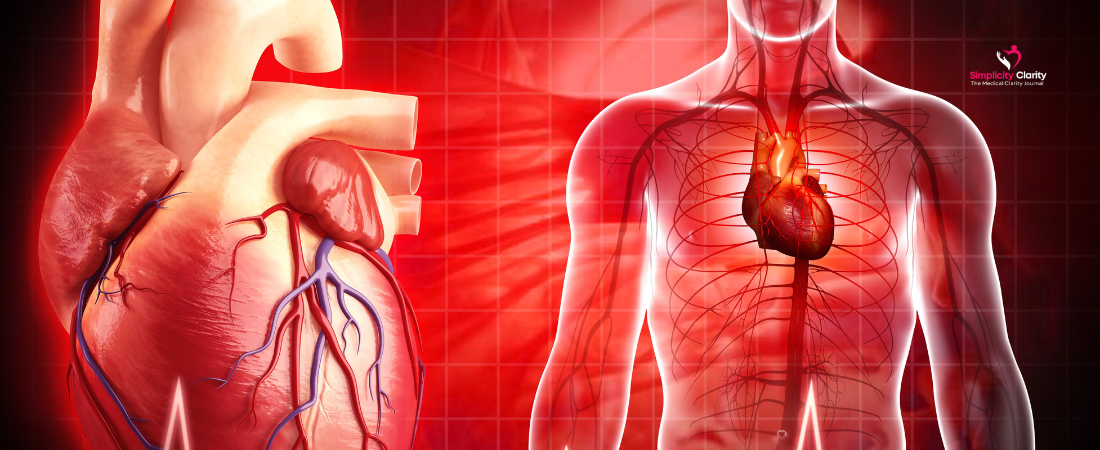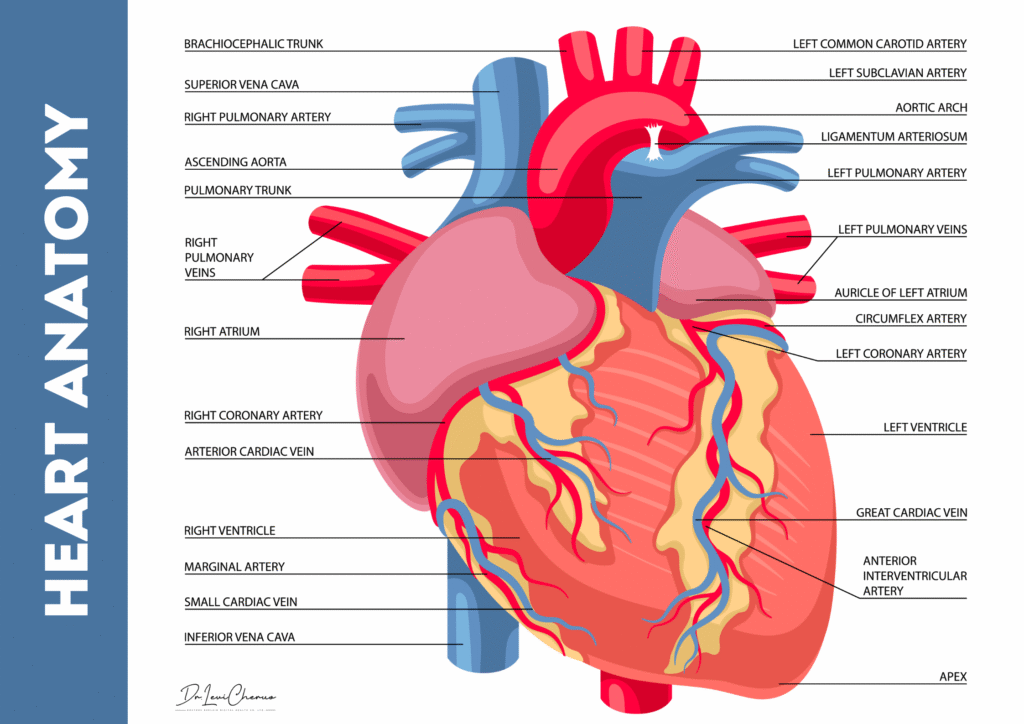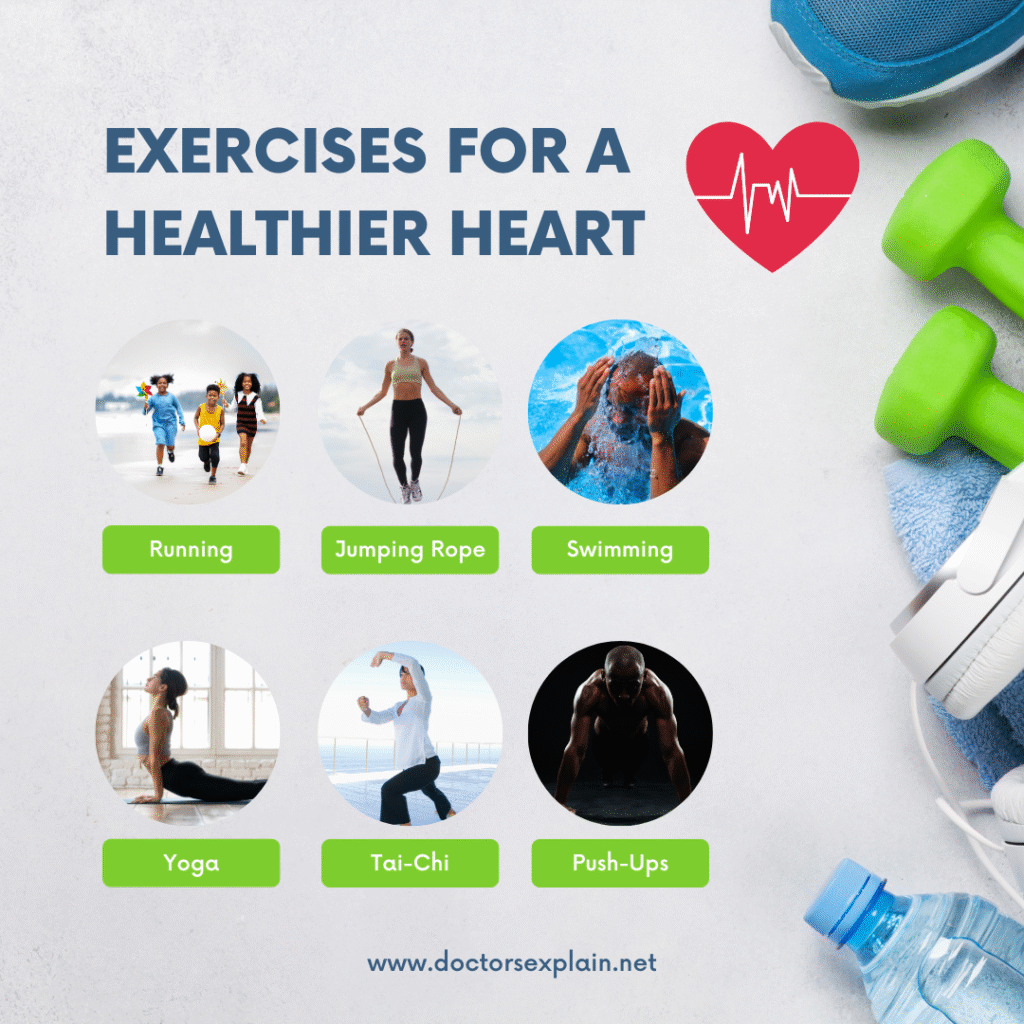
Can You Recover from Cardiovascular Disease?
- June 27, 2025
- 1 Like
- 437 Views
- 0 Comments
Abstract
Cardiovascular disease (CVD) is a leading cause of mortality worldwide, and Africa faces a rising tide of heart-related conditions due to urbanization, dietary changes, and limited access to healthcare. However, recovery from cardiovascular disease is increasingly possible, particularly in the early stages. This paper explores the pathophysiology of CVD, the role of early detection, lifestyle modifications, and pharmaceutical and procedural interventions. Emphasis is placed on the African context while integrating global clinical trial data and research. We discuss groundbreaking developments such as PCSK9 inhibitors, lifestyle reversal programs like the Ornish Reversal Program, and mobile tele-cardiology innovations tailored to low-resource settings.
Introduction
Cardiovascular disease (CVD) encompasses a broad range of heart and blood vessel disorders, including coronary artery disease (CAD), hypertension, heart failure, and stroke. The World Health Organization (WHO, 2024) reports that over 17.9 million people die each year from CVD, making it the leading cause of death globally. In Africa, where health systems are still evolving, a dual burden of infectious and non-communicable diseases (NCDs) has made tackling CVD particularly complex (Mensah et al., 2023).
Although CVD is often chronic and progressive, early intervention through lifestyle change and appropriate medical care can lead to significant improvement—even reversal in some cases (Ornish et al., 2020). This paper focuses on the potential for recovery from CVD, particularly in African populations, using evidence-based strategies.
Pathophysiology of Cardiovascular Disease
The development of CVD typically begins with endothelial dysfunction, where the inner lining of blood vessels becomes damaged due to factors like hypertension, smoking, hyperlipidemia, and diabetes. This damage promotes atherosclerosis, the buildup of plaque (fat, cholesterol, calcium) in the arteries, narrowing them and restricting blood flow. If untreated, plaque can rupture, causing myocardial infarction (heart attack) or ischemic stroke (Libby, 2021).
Other mechanisms include:
- Left ventricular hypertrophy (LVH) due to prolonged hypertension
- Heart failure with preserved ejection fraction (HFpEF) often linked to diabetes and obesity
- Arrhythmias arising from structural and electrical remodeling
Once damage occurs, the heart compensates through mechanisms like increased sympathetic tone and renin-angiotensin-aldosterone system (RAAS) activation, which, over time, worsen cardiac function (Bozkurt et al., 2021).

Can Recovery Happen? The Evidence
1. Early Detection and Lifestyle Intervention
Recovery is most achievable in the early stages of CVD, particularly stage A or B heart failure or non-obstructive coronary artery disease. Studies show:
- The INTERHEART study found that 90% of the risk for a first myocardial infarction is modifiable (Yusuf et al., 2004).
- Ornish Lifestyle Medicine reported reversal of coronary artery blockage using a low-fat plant-based diet, stress reduction, smoking cessation, and moderate exercise (Ornish et al., 2020).
https://www.ornish.com/ornish-program/
2. Pharmacological Advancements
Several modern medications can stabilize or reverse the progression of heart disease:
- Statins reduce LDL cholesterol and are known to regress atherosclerotic plaque (Ridker et al., 2020).
- PCSK9 inhibitors like evolocumab significantly reduce cardiovascular events in high-risk patients. The FOURIER trial confirmed a 15% reduction in major cardiovascular events (DOI: 10.1056/NEJMoa1615664).
- SGLT2 inhibitors (e.g., dapagliflozin) improve outcomes in heart failure, independent of diabetes status (McMurray et al., 2019).
3. Interventional and Surgical Recovery
- Angioplasty and stenting improve blood flow in blocked arteries.
- Coronary artery bypass grafting (CABG) can significantly prolong life and reduce angina in severe cases.
- In some instances, ventricular assist devices (VADs) or heart transplants are life-saving.

African Context: Challenges and Opportunities
Epidemiology and Health Systems
- Cardiovascular disease now accounts for over 11% of deaths in Sub-Saharan Africa, up from 7% in 1990 (IHME, 2024).
- Limited screening and diagnostic access leads to late-stage presentations.
- Affordability and availability of medications like statins and SGLT2 inhibitors are still major issues (Abegunde et al., 2022).
Solutions and Innovations
- Mobile health (mHealth) tools are bridging the gap in cardiovascular care. Programs like mHeart and AFRICA-FIT are using text reminders, remote diagnostics, and teleconsults to monitor blood pressure and adherence (Ogola et al., 2023).
- Task-shifting strategies, where trained nurses or community health workers deliver CVD care, are being piloted with success in Kenya and Nigeria.
- The Healthy Heart Africa initiative, supported by AstraZeneca, has screened over 30 million people for hypertension across 9 African countries.
https://www.astrazeneca.com/sustainability/access-to-healthcare/healthy-heart-africa.html
Latest Clinical Trials and Research Breakthroughs
- DELIVER Trial (2022): Dapagliflozin reduced cardiovascular death or worsening heart failure in HFpEF patients by 18% (DOI: 10.1056/NEJMoa2206286).
- ISCHEMIA Trial (2020): Optimal medical therapy in stable CAD patients was as effective as invasive procedures in preventing major events (DOI: 10.1056/NEJMoa1915922).
- AFRICA-FIT (2024): Ongoing Kenya-based study using AI-powered wearables for early detection and lifestyle coaching in rural populations.
Conclusion
While full recovery from advanced cardiovascular disease may be elusive, functional recovery and symptom reversal are highly possible, especially in early-stage disease. With proper lifestyle changes, adherence to medications, and timely interventions, patients in both high- and low-resource settings—including Africa—can reclaim quality of life and extend their lifespan. Urgent policy attention, affordability of modern drugs, and digital health tools tailored to African contexts are key to making CVD recovery a reality.
References
Abegunde, D., et al. (2022). Improving access to essential cardiovascular medicines in Africa. African Health Sciences, 22(3), 203–212. https://dx.doi.org/10.4314/ahs.v22i3.21
Bozkurt, B., et al. (2021). Universal definition and classification of heart failure. Journal of Cardiac Failure, 27(4), 387–413. https://doi.org/10.1016/j.cardfail.2021.01.022
Libby, P. (2021). The changing landscape of atherosclerosis. Nature, 592(7855), 524–533. https://doi.org/10.1038/s41586-021-03392-8
McMurray, J.J.V., et al. (2019). Dapagliflozin in patients with heart failure and reduced ejection fraction. N Engl J Med, 381, 1995–2008. https://doi.org/10.1056/NEJMoa1911303
Mensah, G.A., et al. (2023). Cardiovascular disease in Africa: The challenge and the promise. The Lancet Global Health, 11(1), e75–e85. https://doi.org/10.1016/S2214-109X(22)00352-4
Ogola, E.O., et al. (2023). Innovative mobile strategies for cardiovascular care in Sub-Saharan Africa. Global Heart, 18(2), 22. https://doi.org/10.5334/gh.1123
Ornish, D., et al. (2020). Intensive lifestyle changes for reversal of coronary heart disease. JAMA, 280(23), 2001–2007. https://doi.org/10.1001/jama.280.23.2001
Ridker, P.M., et al. (2020). Statins and cardiovascular disease: Beyond LDL lowering. Circulation Research, 126(1), 164–179. https://doi.org/10.1161/CIRCRESAHA.119.315365
Yusuf, S., et al. (2004). Effect of potentially modifiable risk factors associated with myocardial infarction in 52 countries (the INTERHEART study). The Lancet, 364(9438), 937–952. https://doi.org/10.1016/S0140-6736(04)17018-9
World Health Organization. (2024). Cardiovascular diseases. https://www.who.int/news-room/fact-sheets/detail/cardiovascular-diseases-(cvds)



Leave Your Comment